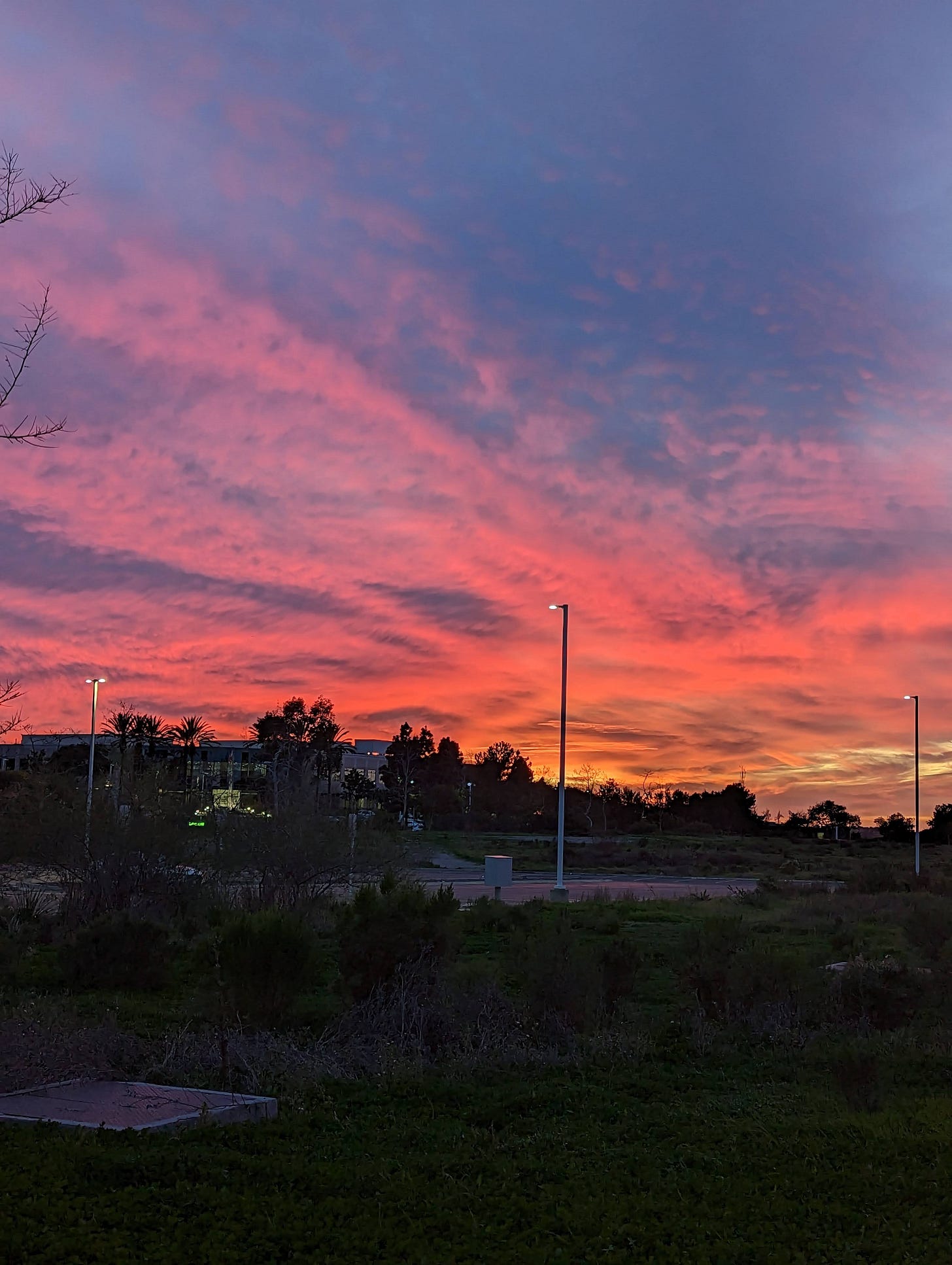Non-transcendent song, scope of emissions and a sunset!
How transformers might not have impressed certain bloggers? Understanding emissions as we consider end-to-end lifecycle of a product & a beautiful Socal sunset!
Another week passes and we see pretty much everyone crowding around the next shiny thing - ChatGPT. The transformer model which is capable of summarizing huge portions of web, and answering your queries in detail based on “knowledge” it acquired by crawling a bazillion links!
Tech companies are eagerly waiting to combine this into a Search experience for you, by integrating this superpower into their products - like giving this ancient browser a fresh look, making worksheets and docs smarter and many more.
My favorite quote of the week is
Information is not Knowledge
Large transformer models, with millions billions of parameters might be able to grasp the world wide web, but access to information, and being able to summarize it, is not equivalent to having all the wisdom in the world.
It might even not be enough to write a pop song, as this blogger eloquently complains, after it asked a transformer to write one :
It has no inner being, it has been nowhere, it has endured nothing, it has not had the audacity to reach beyond its limitations, and hence it doesn’t have the capacity for a shared transcendent experience, as it has no limitations from which to transcend.
What makes a great song great is not its close resemblance to a recognizable work. Writing a good song is not mimicry, or replication, or pastiche, it is the opposite ………
It is those dangerous, heart-stopping departures that catapult the artist beyond the limits of what he or she recognises as their known self.
Despite all the criticism it faces, there are quite a few tasks it does pretty well, in fact it is astonishing how well it does in some of them!
FWIW, it does do a great job, of summarizing code, writing some poems, making simple emails sound bombastic, and much more. These models are definitely going to change the future of content creation.
It’s going to be a crucial tool in reducing mental load over the next couple of years, though I sure to hope that this done in careful, calculated manner. It’s important to understand that its a tool, and how you use it, is ultimately in your hands.
It pretty much now, depends on how and where its deployed, along with the amount of freedom it is given to spew its knowledge information!!
The world is rapidly reaching a point of no return, with climate change. However, IPCC reckons we are at an inflection point, wherein the decisions we take & the polices we vote on - have a real chance of reducing the adverse effects of climate change.
Great strides have been made in reducing the cost of renewables, EVs are finally having their moment in the sun, carbon accounting is becoming the social norm, and investment in green tech has increased in the last decade!
The next couple of years are going to be important, as we do need to keep re-investing and progressing on this green path.
In spite of this progress, a recent report by Rivian and Polestar, suggests that electrification (of transportation) might not enough.

We need to be cognizant of the end to end emissions, derived from a particular product. EPA defines, scope 1 emissions are typically what are produced directly by your product, scope 2 are the indirect emissions generated by upstream activities such as buying energy for manufacturing and while scope 3 emissions are during the product’s lifecycle, and typically after its end of life.!
This essentially points towards adopting more sustainable end-to-end lifecycle for a product, which involves changing parts of its design, all the way to thinking about its end of life!
This is definitely a call to action to all the smart folks out there, to innovate, to design and work on creating not just a sustainable product, but also the processes involved in making it. This is a unique technical and logistical challenge that seriously does require all hands on deck!
On a personal front, I managed to read “Freakonomics” which is a book by an unusual economist - Steven Levitt. He along with his co-author & journalist - Stephen Dubner, explore some very interesting questions like - Do teachers also cheat, if so what are their incentives? Despite all the money that drug dealers make, why do they still live their moms? How is crime co-related to different policies?
The book is an engaging read, that inspires us to look for very interesting outcomes using data analysis.
I love Steven’s podcast - People I mostly admire. He talks with accomplished academians, authors and successful economists about their work, with a naivety and pace that even the most unimpressed folks (like me) are drawn towards economics, and how it interplays with various disciplines!




